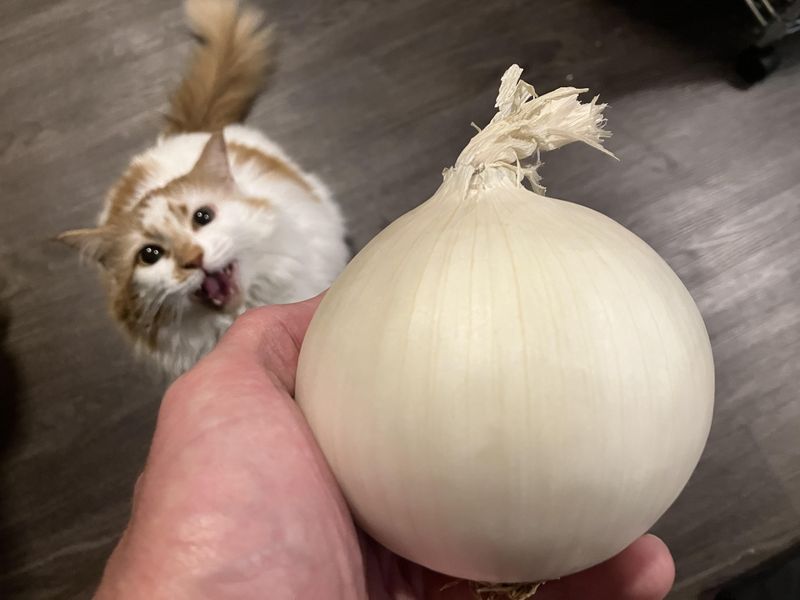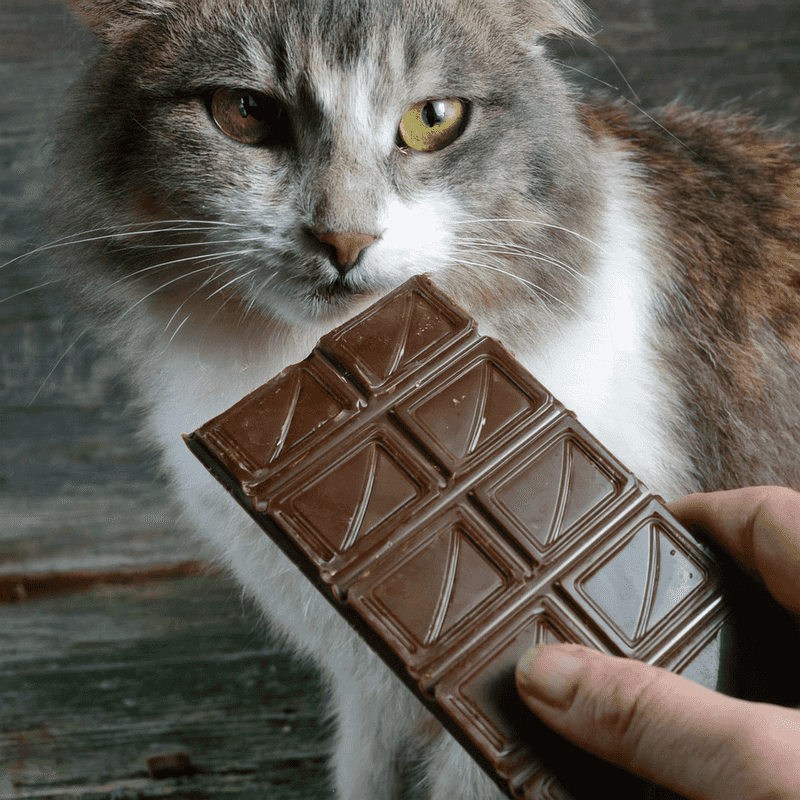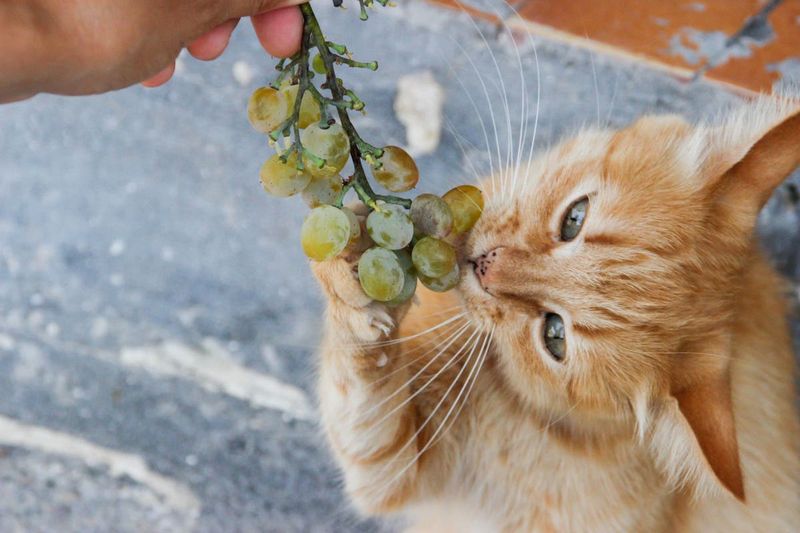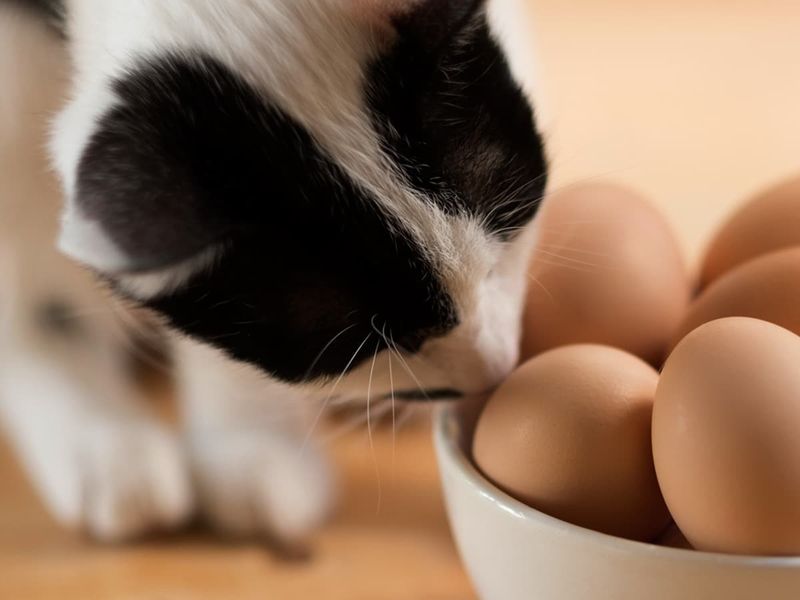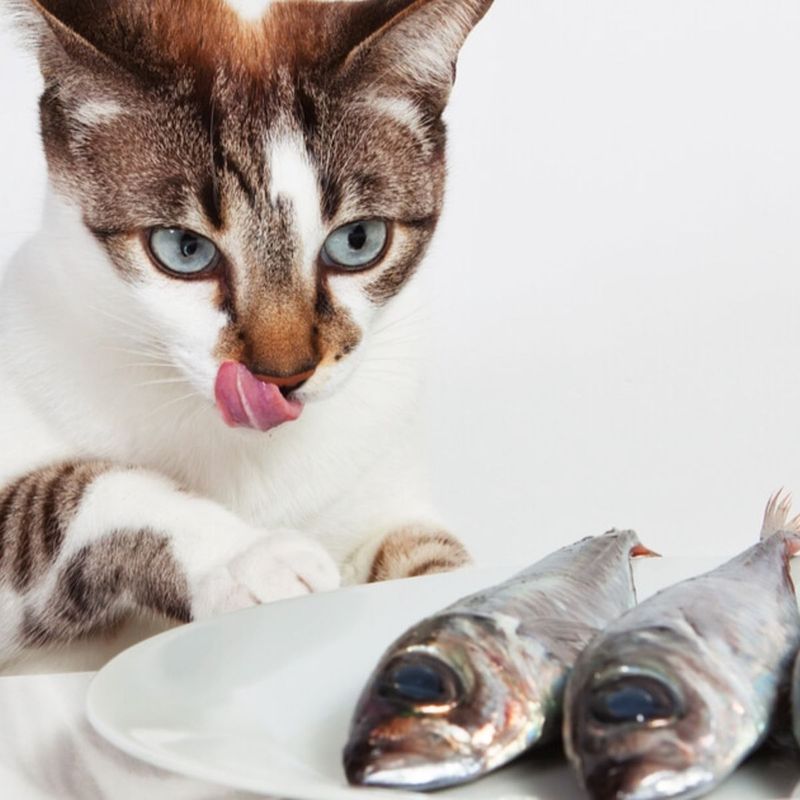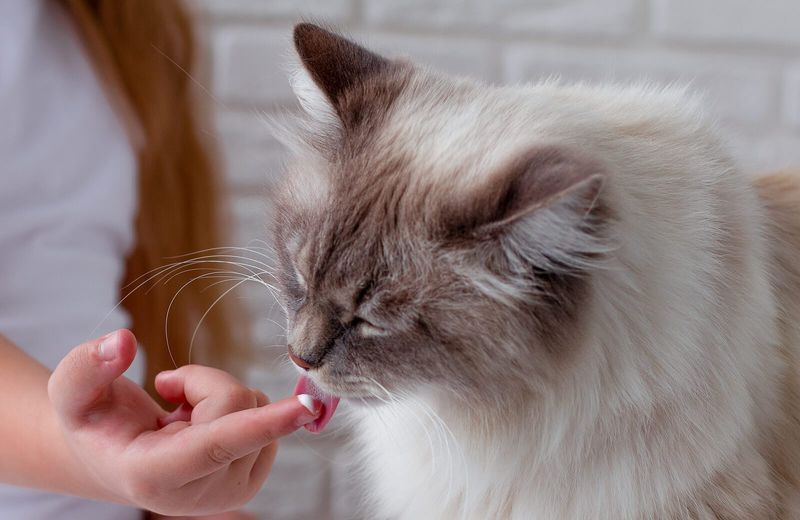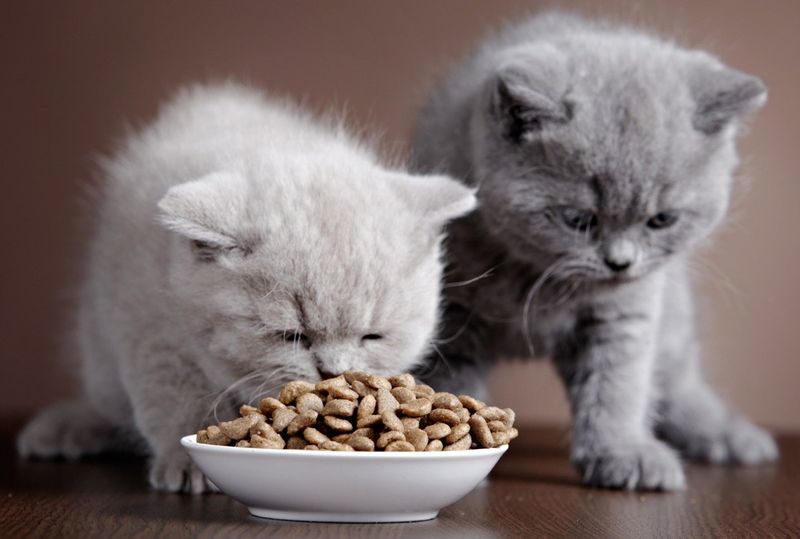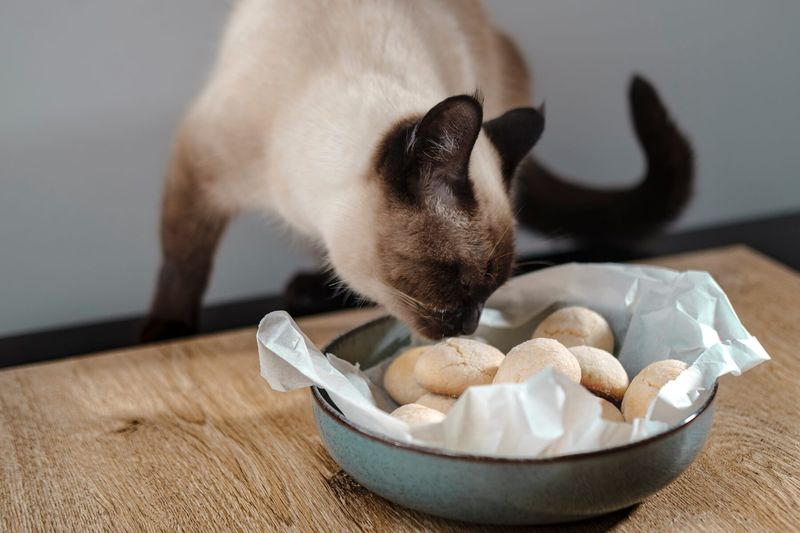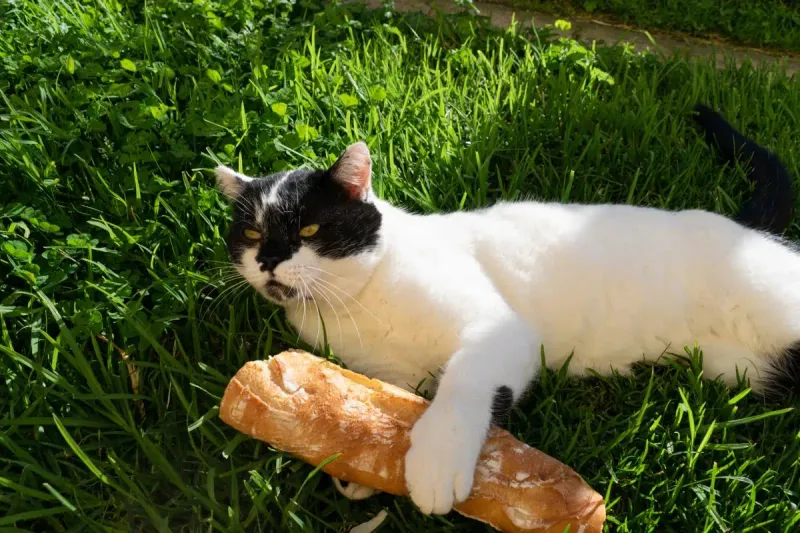12 Toxic Foods You Should Never Feed Your Cat
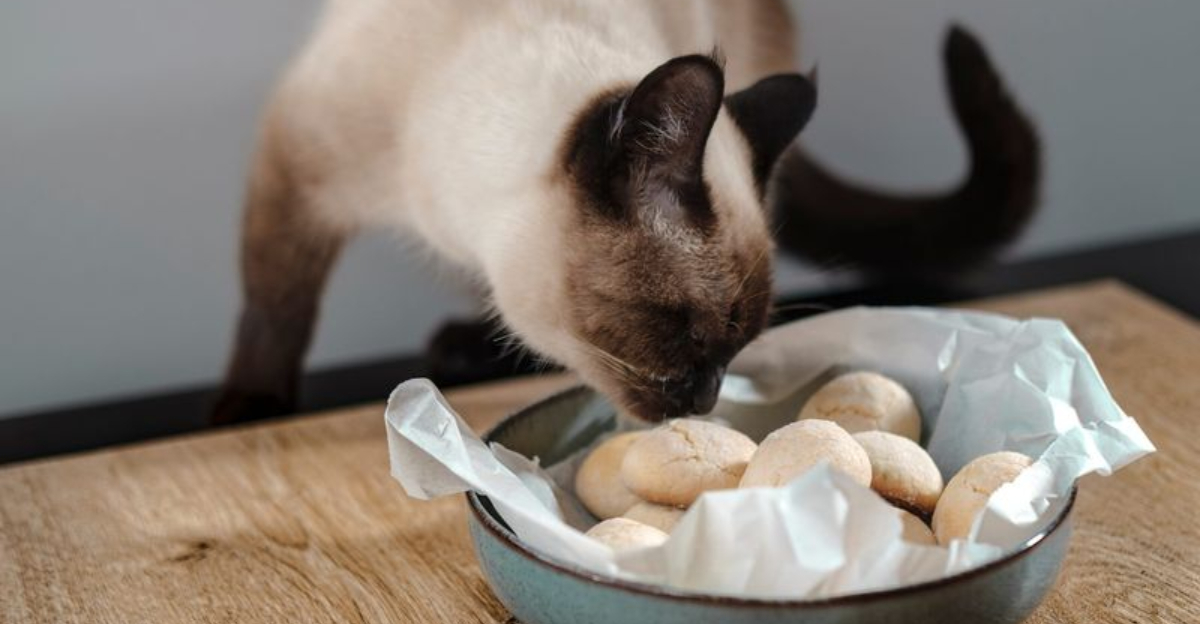
Cats, with their graceful demeanor and mysterious airs, might seem like they can handle anything. However, their curious nature can lead them into culinary traps if we’re not vigilant. From seemingly harmless snacks to unexpected household staples, many foods can pose serious risks to our feline friends.
Knowing what’s safe to share can make the difference between a happy purr and a dangerous vet visit. So, let’s explore some of the surprising edibles that should be kept far from your cat’s curious paws.
1. Onions and Garlic
When it comes to onions and garlic, your cat might find their pungent aroma intriguing, but these culinary staples are no friends to felines. Onions and garlic, whether raw, cooked, or powdered, can wreak havoc on a cat’s red blood cells, leading to anemia. Even small amounts can cause lethargy, weakness, and loss of appetite in your furry companion.
Picture a vampire avoiding sunlight; that’s how your cat should react to these bulbous veggies. The compounds responsible are thiosulphate and n-propyl disulfide, which are not just hard to pronounce but also hard on your kitty’s system.
If your cat has accidentally ingested any form of these ingredients, it’s wise to consult your vet immediately. Garlic bread and onion rings might be tempting treats for humans, but for cats, they are more trick than treat, so keep them out of reach.
2. Chocolate
Chocolate and cats are a recipe for disaster, much like oil and water. While humans may revel in chocolate’s sweet allure, cats should steer clear. The culprit here is theobromine, a compound that cats cannot metabolize efficiently.
Even a small nibble can lead to chocolate toxicity, resulting in symptoms like vomiting, diarrhea, rapid breathing, or even seizures. It’s like a feline horror movie in the making. Dark chocolate and unsweetened baking chocolate contain the highest concentrations of theobromine, making them especially dangerous.
If your cat decides to take a chomp out of a chocolate bar, it’s an urgent situation needing veterinary attention. In this case, sharing is definitely not caring, so make sure to keep those chocolatey delights securely stored away, far from your cat’s curious paws.
3. Grapes and Raisins
Grapes and raisins might seem like innocent snacks, but for cats, they’re more akin to tiny time bombs. The exact substance in grapes and raisins that harms cats is still a mystery, but their consumption can lead to kidney failure.
Symptoms of grape or raisin toxicity include vomiting, lethargy, and abdominal pain, reminiscent of a bad case of the Mondays. Even a small amount can be toxic, so it’s best to keep these fruits out of paw’s reach.
If your feline friend has nibbled on these forbidden fruits, a swift visit to the vet is necessary. Think of grapes and raisins as the gremlins of the fruit world for cats. They might look harmless, but the havoc they can wreak is anything but, so keep them off the menu.
4. Caffeine
Cats might act like they run on caffeine, but in reality, it’s a no-go for their tiny systems. Found in coffee, tea, and certain sodas, caffeine can be a potent stimulant for cats, but not in a good way.
Caffeine toxicity can cause restlessness, rapid breathing, heart palpitations, and muscle tremors. Essentially, it’s like your cat is trying to audition for a jittery jazz dance. Unlike humans who might crave a caffeine boost, even small quantities can pose serious risks to a cat’s health.
Keep your morning brew or energy drinks well away from your curious cat. If your feline pal has sampled some sips, a visit to the vet is top priority. Remember, sharing a morning ritual doesn’t mean sharing the actual drink, especially when caffeine is involved.
5. Alcohol
If you thought a tipsy kitty might be amusing, think again. Alcohol is extremely hazardous to cats, even in tiny amounts. It’s not just about the strong smell that might make your cat wrinkle its nose; alcohol can affect a cat’s liver and brain much more rapidly than it does in humans.
Imagine your cat having a night out: lethargy, vomiting, and in severe cases, respiratory depression or even coma. It’s not the kind of party anyone wants to attend. Even foods containing alcohol or fermenting dough can pose risks.
Keep your cocktails and celebratory spirits out of your cat’s reach, and if an accident happens, immediate veterinary attention is crucial. The only thing your cat should be getting high on is life, not spirits.
6. Raw Eggs
Raw eggs might be hailed as a superfood for humans, but for cats, they’re more like a super no. Raw eggs can be a source of Salmonella or E. coli, leading to gastrointestinal distress. Think of it as the feline equivalent of a rollercoaster ride gone wrong.
Besides bacteria, raw egg whites contain avidin, an enzyme that can interfere with the absorption of biotin, a B vitamin essential for skin and coat health. So, feeding raw eggs could leave your cat with a less-than-lustrous coat, rather like a bad hair day.
If you want to pamper your cat with eggs, cooked is the way to go. Keep the raw ones for your own breakfast experiments and ensure your cat’s encounters with eggs are strictly cooked and salmonella-free.
7. Raw Fish
Fancy some sushi? Your cat might think so too, but raw fish is a risky choice. It can contain harmful bacteria like Salmonella or certain parasites that are as unwelcome as a sudden bout of hiccups.
Thiaminase is another concern, an enzyme that can break down thiamine, an essential B vitamin. A deficiency in thiamine could leave your cat feeling more like a lethargic lounge singer than a sprightly performer.
While your feline friend might fancy themselves a sushi connoisseur, stick to cooked fish to avoid any culinary calamities. If your cat seems interested in raw fish, it’s best to redirect their attention to safer treats. After all, the only thing your cat should be catching raw is a few rays of sunshine.
8. Xylitol
Sugar-free doesn’t mean safe when it comes to cats and xylitol. This artificial sweetener, commonly found in gum and candies, can be exceptionally toxic to cats. It’s like a wolf in sheep’s clothing, deceptively sweet but with dangerous consequences.
Ingesting xylitol can lead to a rapid insulin release, causing hypoglycemia (low blood sugar), which can manifest as vomiting, loss of coordination, or even seizures. It’s no sweet deal for your furry friend.
Keep sugar-free treats firmly in the human domain and ensure they’re stored securely. If your cat has managed to get their paws on xylitol-laden goodies, swift veterinary intervention is key. Remember, when it comes to xylitol, less is definitely more – more trouble, that is.
9. Avocado
Avocados might be a millennial favorite, but for cats, they’re more of a millennial menace. Containing a substance called persin, avocados can be problematic for cats, especially if consumed in large quantities.
While not all cats react severely, some might experience gastrointestinal upset or even pancreatitis, making it less of a snack and more of a snafu. It’s like going for a swim only to find the pool has no water.
The pit, skin, and leaves of the avocado contain higher concentrations of persin, so it’s best to keep your guacamole and avocado toast away from your feline friend. If your cat has taken a liking to this creamy fruit, consult your vet to ensure all is well. Remember, some trends are best left unshared.
10. Macadamia Nuts
Macadamia nuts may be a luxury snack for humans, but for cats, they’re more like a luxury no. While the exact toxic principle is unknown, ingesting macadamia nuts can lead to weakness and lethargy, akin to the aftermath of a long day.
Symptoms can also include vomiting, tremors, and hyperthermia, none of which are conducive to a cat’s usual grace and poise. Even a small amount can cause distress, making it more trouble than it’s worth.
Keep these nuts tucked away in your pantry, reserved for human consumption only. If your cat happens to snatch a nutty snack, a visit to the vet is in order. When it comes to macadamia nuts, it’s best to let your cat stick to their usual kibble.
11. Dairy Products
Curiosity might lead your cat to a bowl of milk, but dairy products can cause digestive disturbances for many felines. Despite the stereotypical image of cats and milk, many are lactose intolerant, making dairy more foe than friend.
Milk, cheese, and other dairy products can lead to upset stomachs, diarrhea, and discomfort, transforming snack time into a tummy ache. It’s like expecting a relaxing bath and finding the water too cold.
If your cat loves the creamy taste, opt for specially formulated cat milk that’s lactose-free. Otherwise, keep dairy as a human treat, and let your feline enjoy snacks that agree with their digestive quirks. When it comes to dairy, it’s best to think outside the carton.
12. Yeast Dough
Yeast dough might be the start of a delicious loaf of bread for humans, but for cats, it’s a bellyache waiting to happen. As the dough rises, it can expand in a cat’s stomach, causing bloating and discomfort.
It’s like ordering a balloon and getting a blimp instead. Furthermore, the fermentation process produces alcohol, which can lead to alcohol poisoning. It’s a double whammy of trouble for your feline friend.
Keep rising dough away from curious paws, and if your cat manages to sneak a taste, prompt veterinary care is essential. Remember, when it comes to bread-making, it’s best to let your cat enjoy the finished product from afar, safe and sound.

